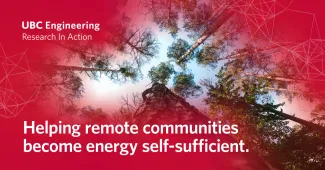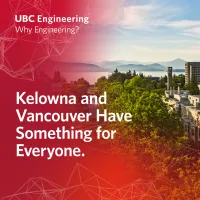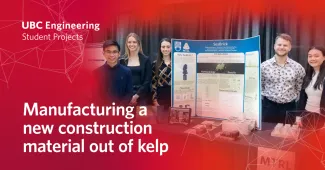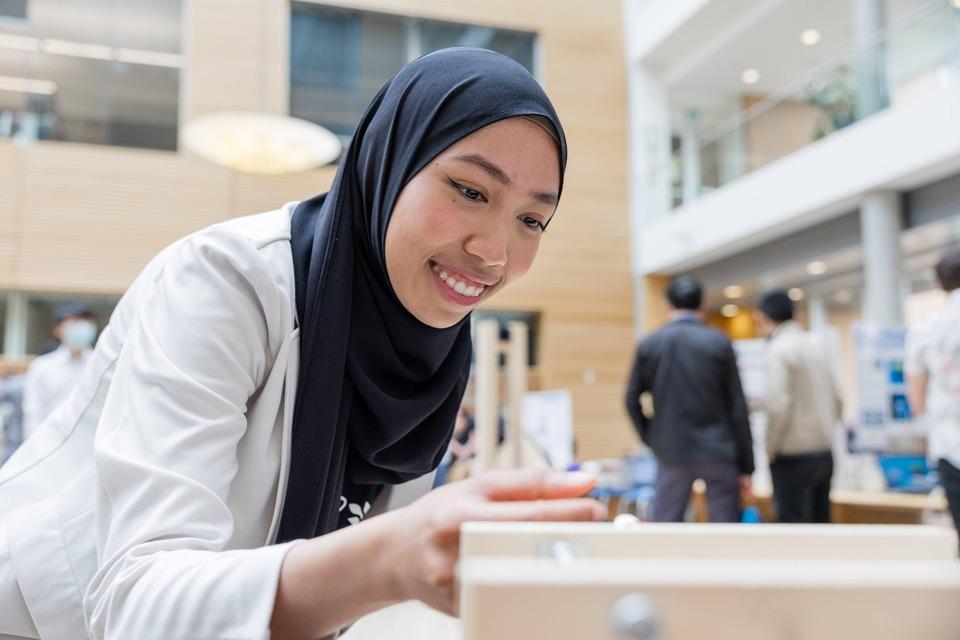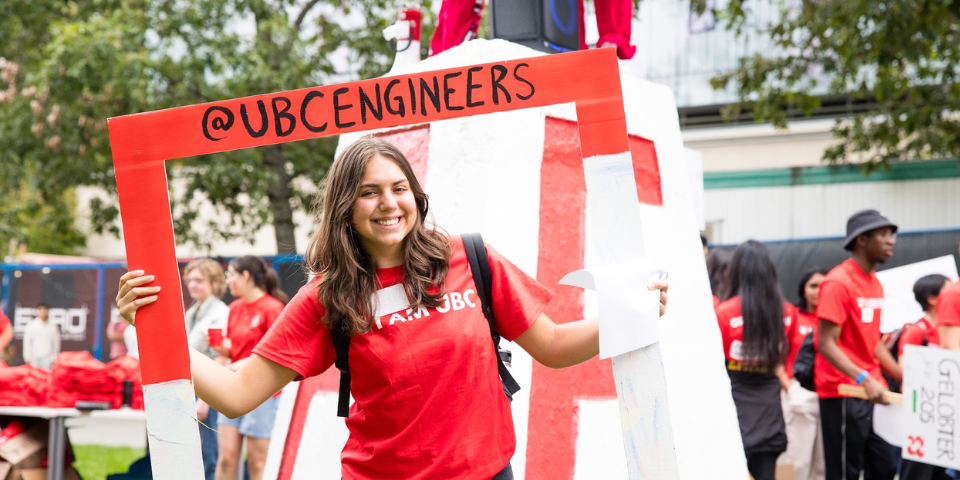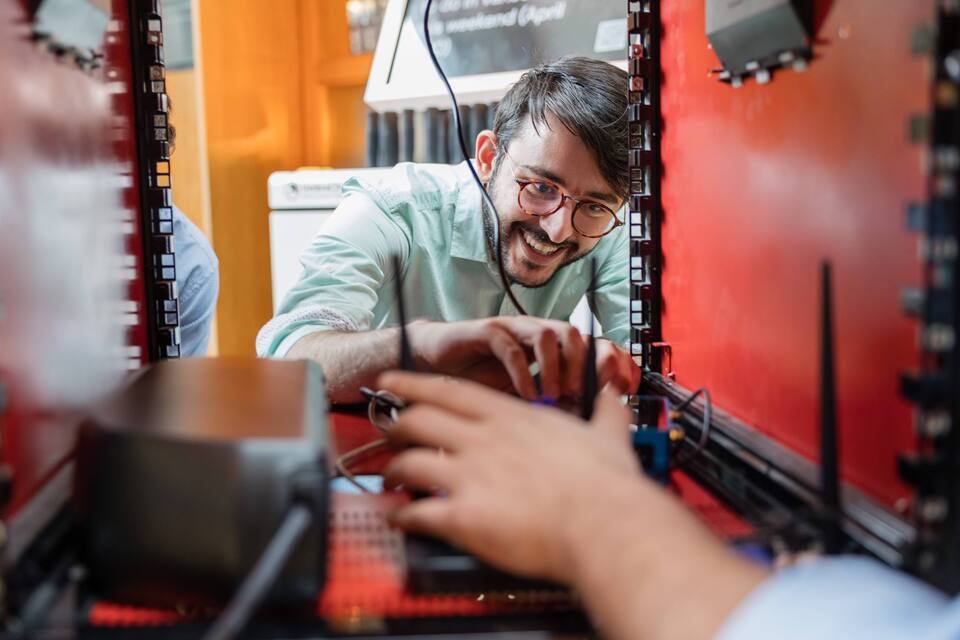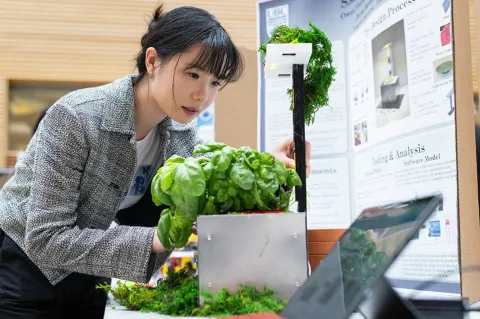
If you want to make the world a better and more sustainable place, engineering is the way to do it
Engineers make an impact in everything they do, whether that’s coming up with ways to improve access to clean water, repurposing waste materials in the construction industry, helping remote communities become energy self-sufficient or using AI to create sustainable solutions in the mining industry.
Engineers have the technical knowledge and problem-solving skills to contribute to a more just and equitable world. And UBC is one of the best places to learn how to do just that.
A course on humanitarian engineering
You can even take a course on humanitarian engineering, where you will be part of an interdisciplinary student team and work on real-world humanitarian challenges in partnership with NGOs.
Created and co-taught by Dr. Gabriel Potvin (a professor of Chemical and Biological Engineering from the Faculty of Applied Science) and Dr. Jenny Peterson, a professor from the Department of Political Science in the Faculty of Arts, the course brings together students from across the university to learn about humanitarian theory, engineering design, sustainability, project management, implementation and risk analysis.
“Humanitarian challenges are complex and require interdisciplinary collaboration to be effective.” says Dr. Potvin. “There is often a technical aspect to addressing them, where engineers can add value through their technical expertise, but these issues also have important social considerations and require being able to work with people. You might have a technically flawless design, but if it’s hard to use, or if the end users do not use it for any given reason, you haven’t solved the problem and so ultimately it isn’t a good design."
Over the last years the course has been on offer, students have had the opportunity to work directly with NGOs on projects that have included renewable energy in Peru, a water kiosk in Uganda, treating contaminated water in a village in Chile, and developing a water treatment plan for a community in BC, among several others.
“The students provide a technical design as well as a sustainability assessment covering the environmental, social and economic risk,” says Dr. Potvin. “They produce comprehensive reports that NGOs will be able to actually use. Even as undergrads, our students are developing and applying their skills to make a real impact in the world.”
The course was a highlight for Environmental Engineering student Harishankar Krishnan who worked with students from the Faculty of Arts to design a small-scale water treatment system for a First Nations community in BC’s interior.
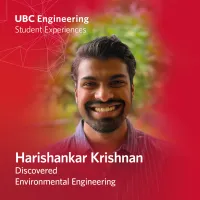
“We interviewed the water manager from the community as well as someone from Indigenous Services Canada,” he explains. “At the end of the term, we submitted a report with a proposal, backed up with contextual and technical information. This was a great project. Engineers often tend to think that the best solution is one that can be applied anywhere. However, the arts students quickly pointed out that this is not always true and that context matters. Each community needs its own solution that addresses and accounts for its unique problems.”
Read a Vancouver Sun article about the course
Making a difference
UBC Engineering alumni are putting their passion for social justice and sustainability into action. Check out profiles of alums and read how they are writing code for autonomous drones that are delivering blood and medicine to remote communities in Rwanda, evaluating green energy solutions, or working with multinational corporations on ways to reduce their greenhouse gas emissions.
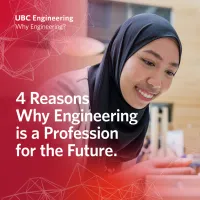
If you want to make a difference in our world, engineering is the way to do it. And UBC is the place to be to gain the knowledge, skills, experience and network you need to create a more inclusive, equitable and sustainable planet for all.
“As a student, you have the opportunity to learn about sustainability from leaders in the field,” says Dr. Naoko Ellis, a leading researcher in clean energy systems and technologies and a professor of chemical and biological engineering. “But you also have the opportunity to get involved and do sustainability – whether that’s being part of an undergraduate research project or taking part in one of the many clubs and design teams that focus on this area.”
